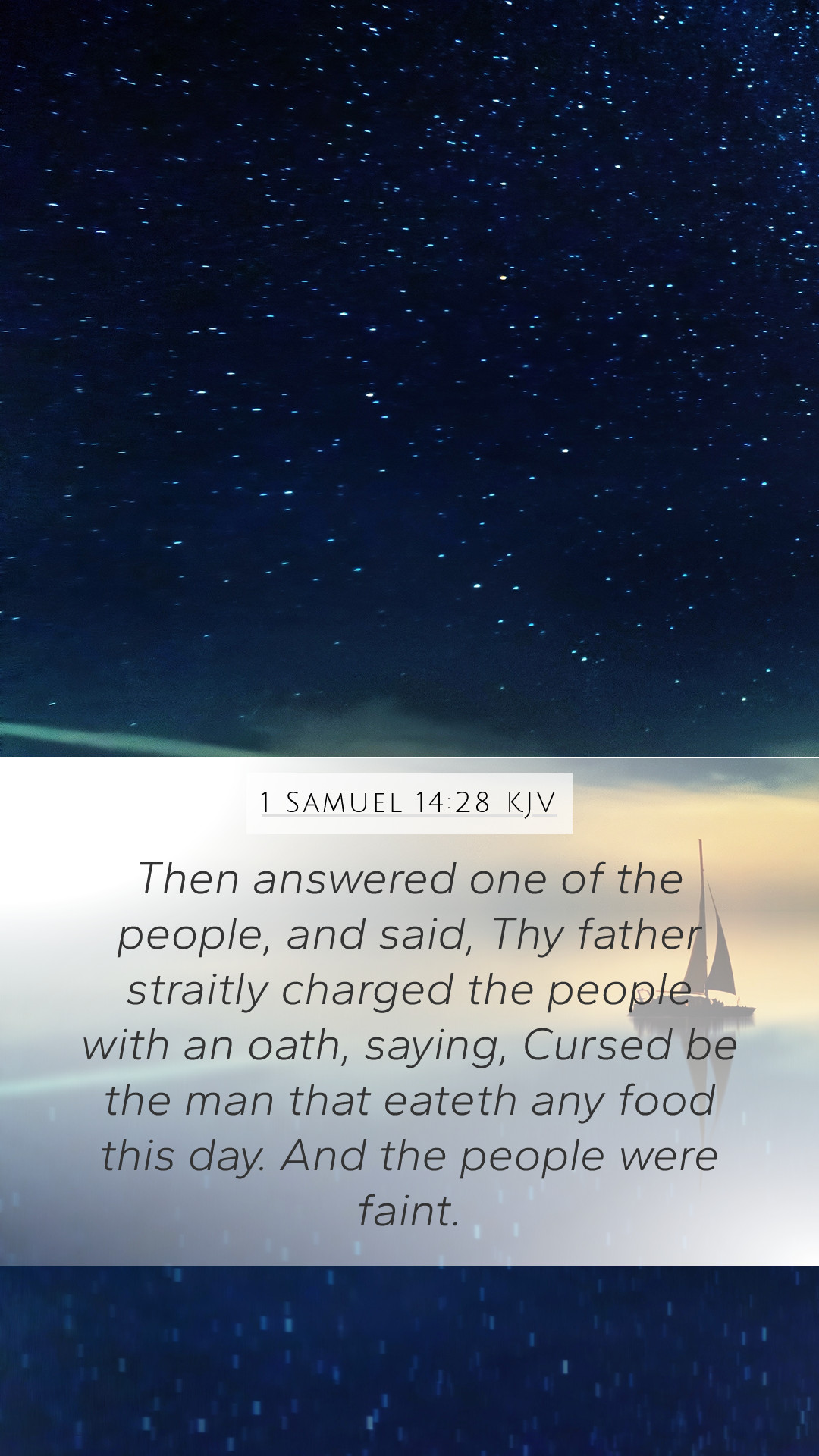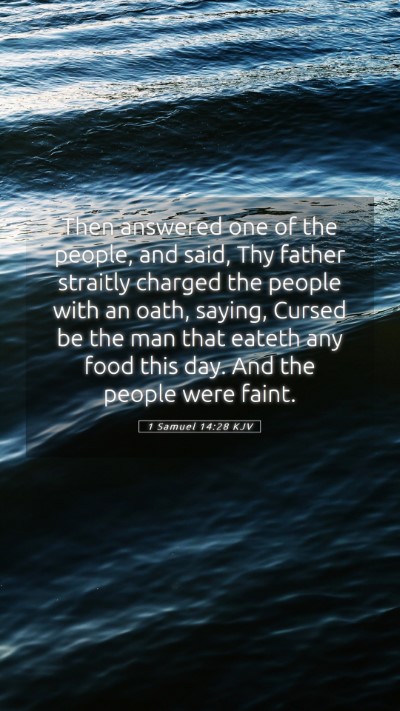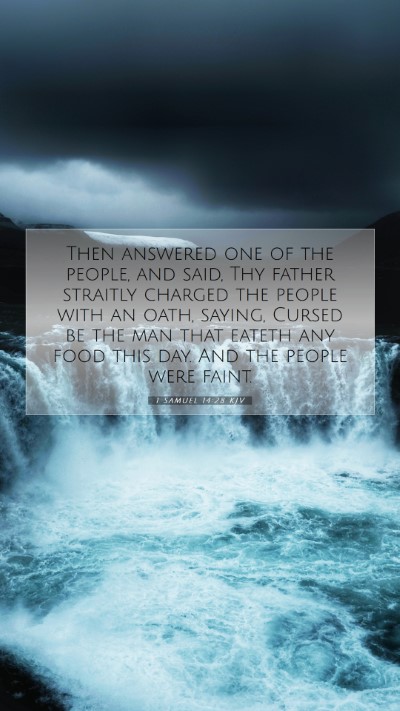Understanding 1 Samuel 14:28
1 Samuel 14:28 states, "Then answered one of the people, and said, Thy father straightly charged the people with an oath, saying, Cursed be the man that eateth any food this day. And the people were faint." This verse reflects a crucial moment in the narrative of Saul and David, highlighting the implications of hasty decisions made by leaders and the subsequent consequences on their followers.
Bible Verse Meanings
In this passage, we see the aftermath of a rash oath sworn by King Saul. Matthew Henry indicates that Saul’s decision, though intended to keep his soldiers focused and vigorous during battle, ultimately led to their exhaustion. The command not to eat created a heavy burden on the soldiers, revealing Saul’s lack of foresight and sensitivity to the needs of his men.
Bible Verse Interpretations
Albert Barnes emphasizes that Saul’s charge to his troops represents the struggle between authority and compassion. By invoking such a strict oath, Saul failed to consider the practical needs of his men, showing that leadership must involve understanding and empathy towards those one leads. Barnes also points out the contrast between Saul's outward strength as a king and the internal weakness that his decisions reveal.
Bible Verse Understanding
Adam Clarke adds that the soldiers' faintness signifies the struggles faced during times of intense pressure and ambition for victory. They were not only physically weakened by their fasting but also demoralized by the sudden oath that stifled their ability to sustain themselves. We learn here that sometimes the zeal of a leader can lead to detrimental outcomes when not tempered with wisdom.
Bible Verse Explanations
The verse underscores the importance of thoughtful leadership and the need for leaders to appreciate the situations faced by their followers. The concept of 'cursing' echoes throughout Scripture, reminding us that words and decrees from authority figures can have powerful implications that must be considered carefully.
Bible Study Insights
- Consequences of Leadership Decisions: This verse highlights how a leader's decision, even if made with good intentions, can profoundly affect the well-being of their followers.
- The Nature of Oaths: The strong oath taken by Saul raises discussions on the significance and power of words and promises within biblical narratives.
- Physical Needs in Spiritual Warfare: This passage reminds believers that spiritual fervor should not dismiss practical human needs, especially during struggles.
Cross References
- 1 Samuel 14:24 – Details of Saul's oath and the burden it placed on his people.
- Matthew 5:37 – Jesus' teaching on oaths and how one's word should be meaningful without swearing.
- Proverbs 12:18 – Discusses the power of words and the harm that can come from rash statements.
Application of 1 Samuel 14:28
The insights derived from this verse can be directly applied to modern leadership and decision-making contexts. It encourages those in authority to seek counsel, consider the ramifications of their commands, and lead with compassion, especially in challenging times.
Conclusion
The story captured in 1 Samuel 14:28 provides timeless wisdom about the dynamics of leadership, the strength of oaths, and the need for leaders to prioritize the well-being of those they lead. Reflecting on this verse allows us to engage in deeper biblical exegesis and understand the broader themes present in Scripture when studying critical moments in the lives of biblical figures.


